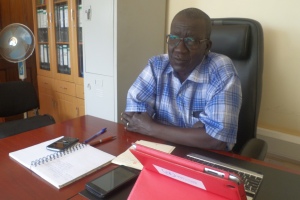By Willy Chwoo
Gulu/Uganda

MY TAKE ON THE INTERNATIONALIZATION OF HIGHER EDUCATION IN AFRICA
Internationalization is a worldwide phenomenon that requires increased regional and international cooperation accompanied with workable policies, strategies and ethical standards.
Africa has also experienced an expansion in the numbers and types of providers of higher education, while this can be beneficial, it also presents several challenges in areas such as quality assurance, commercialization and commondification as well as relevance.
The quality of the degrees that university awards to their graduates is still a big challenge, some universities are under scrutiny by the education bodies on how they award master degrees or PhD to their students yet they do not meet the minimum requirements. This still raises a big quality assurance question, such universities most of them are private which are commercial in nature, and there is need for common standards to be in place to regulate both government aided and private universities in Africa to attract cross-border movement of students to study either way.
Most African Universities do not have enough Research facilities, hence making them do few publications compared to other world. African Universities need to invest much more in research; this can be done through strengthening on the existing research facilities to improve on the university visibility through publications that address the common needs of the societies in Africa. The Human research capacity of the university is low, most university dons are young in the field and they need support to enhance their capacities to become leading researchers. This can be done through mentorship of the young researchers, supporting them to stay, and addressing their needs.
The trained professionals are running away from working the African Universities due to poor pay and lack of motivation created a wide human resource gap in most African universities. African governments need to invest in these universities to maintain and develop the full time lecturers through motivating them (sending them for further studies, promotions etc), pay them well and in time, this will reduce the burden of the trained professionals leaving African Universities and going for the “greener pasture” in other continents like in Europe, Asia, America creating human resource gaps.
Most African Universities if not all are gripped with the problem of underfunding and delay in release of finances by the government to support their university activities. This has at most times resulted into strike by lecturers over their salary delays, students striking because they are not being taught, and lecturers failing to supervise students who are in their final years coupled with delay in releasing the results.
As much as been said about the internationalization of higher education in Africa, the institutions still have poor infrastructure, this might include, water and electricity system, Internet and social media system, few or no furniture for the students etc, which compromises academic performance, quality and their visibility. A university which does not provide reliable Internet for her students to enable them do research; will not be able to cope with international standard.
Dr. Emilio Ovuga, a professor of Psychiatry and Mental health of Gulu University recently told me in an interview that African University AU should have a high quality curriculum in their universities and should make them relevant to their communities
Dr.Ovuga adds that to improve on AU visibility , they should invest a lot in ICT, Internet and social media as based mode of making them visible, this well help them do a lot of research relevant to the communities, share research publications and lecturers will be able to access conference facilities.
Governments in Africa need to wake up and begin supporting their universities financially to meet the goal of realizing the internationalization of higher education in Africa.
